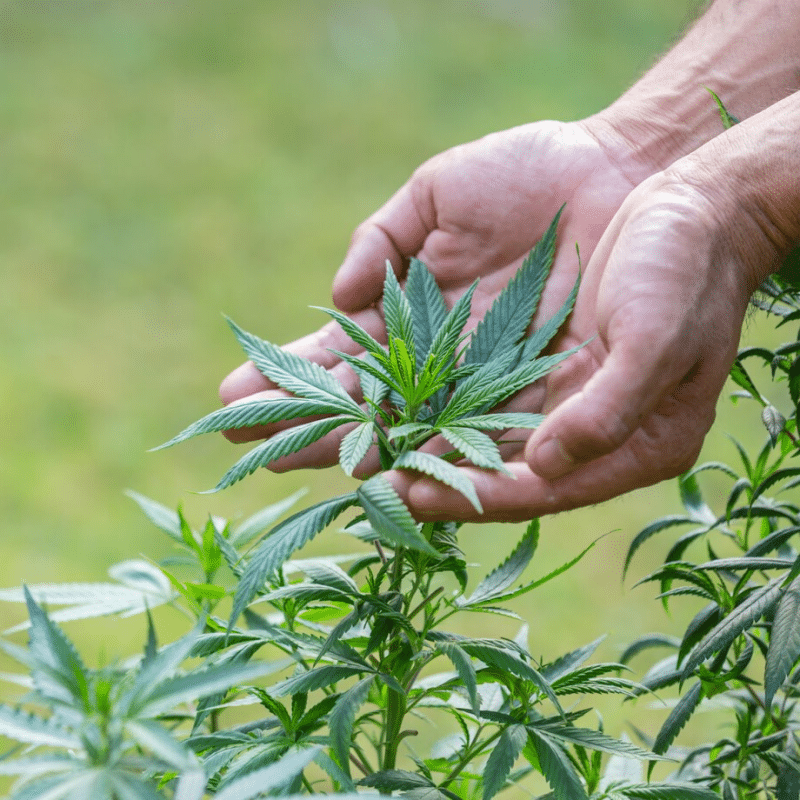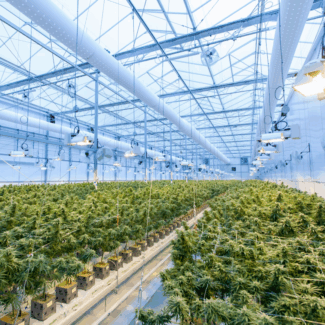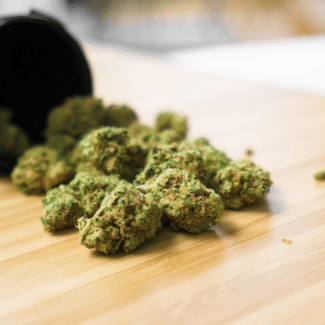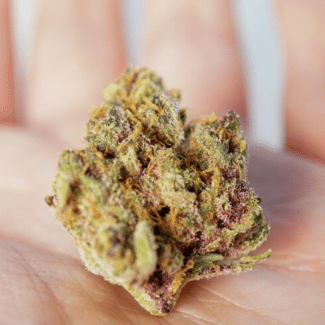Overcoming the Hurdles: Challenges and Opportunities in the Industrial Hemp Industry

Like cannabis, hemp is not an easy industry to flourish within. While the hemp industry is not quite as heavily regulated as medical or recreational cannabis, that doesn’t mean the industry is free from challenges — ones that additional regulations may even solve. Despite the challenges, hemp is a promising space for gutsy and forward-thinking entrepreneurs looking to set the foundation for long-term business success.
Challenges in Hemp Production
Challenges inevitably arise in any agricultural endeavor, and hemp production is no exception. Growers face a unique set of hurdles in establishing successful and profitable hemp production operations. This section will delve into some of the key challenges encountered in the cultivation and processing of hemp, shedding light on the complexities of this burgeoning industry.
Supply Chain Issues
The challenges with hemp crops start from the very bottom — finding quality genetics and reliable seed banks. A report from Purdue found that the biggest issue for hemp growers is “mismatch between the label and what we see in the bag of seed” or cultivators not getting the strains they ordered. They also noted “poor root development and pest infestation as two big clone issues last year.” Finding quality seed banks and clone breeders is easier said than done in the hemp industry, because of the lack of regulations.
Problems persist at every stage of the supply chain to grow industrial hemp, from inadequate processing infrastructure for creating hemp products to limited options for transporting and storing hemp biomass. As an emerging industry, many business owners flock to the more “glamorous” side of business such as retail or creating a product brand, which leaves a gap in the necessary backend of the supply chain. This is especially true for industrial hemp production, processing the plant into insulation, hemp fibers, paper, wood, hemp seeds, and more — most of which are done internationally at this time.
Competition From Other Materials
While the consumable hemp market is exploding, hemp is a plant with a multitude of possibilities that expand far beyond edibles and beverages. The industrial hemp plant can be processed into biofuel, insulation, wood, hemp fiber, plastic replacements, and more, which means it has large competition to face in other material industries, like cotton, timber, and plastic.
The lack of robust processing infrastructure means that hemp production is costly and time-consuming — for right now. While this is expected to change slowly, having a more robust domestic hemp production program would open the floodgates to new levels of potential profits for hemp companies (not to mention, more environmentally-friendly options for consumers.)
Labor Shortages
Hemp and cannabis are both relatively new industries, which means a shortage of qualified, experienced workers with an industry standing of the plant. Many people who have plant-touching experience worked in the legacy market with no bosses to provide a reference or worse, a criminal record that can ban them from the industry entirely. From cultivation to processing and manufacturing, many people interested in joining this industry require comprehensive, expensive training. But this is time well spent, as many employees desire continuing educational opportunities from their workplaces, and training from accredited cannabis workforce or higher education programs benefits both the business and the employee.
THC Testing and Compliance
Testing is a major challenge that hemp companies face. It is unfortunately not uncommon for hemp crops to “test hot” coming over the 0.3% THC limit, at harvest or after the curing process. This has the devastating effect of ruining a crop and making it unsellable, losing potential profits. Companies that take the risk and try to sell the hemp anyway can face massive fines from the federal government, and potentially lose their hemp licenses.
There is also a shortage of hemp testing labs in the country, which can make it challenging to get results back in a timely manner.
Start protecting your cannabis business
Cultivating Success: Opportunities in the Hemp Industry
While challenges exist, the burgeoning hemp industry also presents a wealth of exciting opportunities for farmers, entrepreneurs, and researchers alike. Driven by increasing demand for diverse applications, from textiles and bioplastics to health and wellness products, hemp offers the potential for economic growth and sustainable agricultural practices. This section will explore the promising avenues within the hemp industry, highlighting the innovative possibilities and the potential for cultivating success in this dynamic market.
Innovation and Product Development
As mentioned above, the potential uses of the industrial hemp plant are impressive — and not limited to our current list of applications. Opportunities abound in this space for innovative entrepreneurs who are able to see beyond what exists in hemp production into what could be. These innovations help hemp companies differentiate themselves -— like a hemp toilet paper company that processes CBD biomass that would otherwise be wasted into an essential product and a new use case for hemp.
Continued research and development are key to finding new applications for industrial hemp production Sure, edibles (including hemp seeds), beverages, and smokables dominate the market today — but what’s coming tomorrow, and who will be the first to bring us there?
Building Strong Partnerships
We’ve said it before and we’ll say it again — a rising tide lifts all ships. Cannabis and hemp businesses are stronger together than they are individually. Collaborations between businesses can help overcome weaknesses and amplify strengths. By working together, hemp producers, processors, manufacturers, and researchers can increase profits, strengthen their voices, and bring better products to market for consumers.
These partnerships can be individual, a few businesses getting together, or they can be collective, forming industry associations and cooperatives to pool their resources and address common challenges.
Promoting Sustainability and Environmental Benefits
Today more than ever consumers are seeking sustainable, environmentally-friendly products — and hemp is at the top of that list. Hemp plants are massively impactful on their environments, improving soil health by pulling toxins like pesticides and heavy metals out and sequestering carbon in their thick stalks and large root systems.
This makes hemp a potentially important player in creating a more sustainable agriculture system. If a plant can replenish toxic soils, improve the air we breathe, and still be processed into usable products, it takes us several steps closer to a circular economy. This can be encouraged through a state or federal-level environmental quality incentives program or a more local regional conservation partnership program.
The Role of the Domestic Hemp Production Program
Ultimately, bringing the entire supply chain of hemp production stateside will have one of the biggest measurable impacts on the cost of doing business in the hemp industry. Right now, much of the process is outsourced overseas: hemp processing into paper in China, hemp seeds produced for sale in South America, research coming from Europe — the list goes on. A domestic hemp production program would significantly lower the cost of processing industrial hemp.
While much of the manufacturing industry has left the United States, hemp offers a chance to bring it back, offering the potential for millions of jobs — and dollars into the American economy. From cultivation to the multitude of processing opportunities and retail stores, hemp is a versatile crop that deserves its place in our stores, homes, and lives.
This can be accomplished by the hemp industry banding together and advocating for the plant and its potential. Furthering research on the products hemp can be turned into presents a compelling economic case for domestic hemp production through agricultural research institutions, while more training is needed to dispel the lingering stigma of reefer madness. It’s not enough to limit help to edibles and smokeables. This is a plant with the potential to help us reinvent multiple industries, if only businesses are brave enough, and organized enough, to speak up for it.
The backbone of the hemp industry is hemp producers, the farmers. They cannot be left to figure it out on their own with questionable genetics and hard labor practices. Growing this industry requires meeting the needs of hemp growers better, with financial resources, plant training, and even technical assistance throughout the grow and harvest process.
Hemp is a historic plant, but it has long been out of our collective knowledge as a result of prohibition. Unlike other crops like soybeans or corn, hemp farmers lack comprehensive best management practices for maximizing their yield. There are plenty of tips to be found in the legal cannabis industry, but the game changes when you’re focused on plant size rather than singular cannabinoid production.
The hemp industry is ripe with potential; both in opportunities and pitfalls. Industrial hemp cultivation can change the future of dozens of industries. Success requires working together, advocating for a better future, and protecting your business for tomorrow.
Protecting your industrial hemp company can seem confusing; however, we’re a full-service insurance brokerage working with carriers worldwide to offer you the best coverage possible. We’re here to help! Please reach out to us today by email [email protected] or calling 646-854-1093 for a customized letter or learning more about your industrial hemp insurance options.



